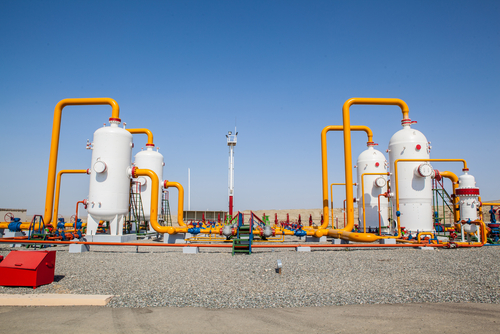
The initial results of nine months of continuous air emissions monitoring at natural gas well sites and compressor stations in southwestern Pennsylvania indicate that CNX natural gas development poses no public health risk, according to the first Radical Transparency™ assessment report released Aug. 14 by CNX Resources Corp.
“The initial results and ongoing monitoring from our Radical Transparency program indicate that natural gas development done the CNX way is safe and inherently good for the communities where we operate,” said CNX Resources President and CEO Nick Deiuliis. “We call on our industry peers to join us in these important efforts to ensure that public policy in Pennsylvania is driven by directly measured data and facts instead of agendas and speculation.”
CNX Resources, a premier, ultra-low carbon intensive natural gas development, production, midstream, and technology company centered in Appalachia, committed to sharing real-time continuous air emissions monitoring data, enhanced water quality testing results, disclosure of chemical usage, and additional waste reporting at well sites and midstream infrastructure in southwestern Pennsylvania through the Radical Transparency program.
The program is a first-of-its-kind collaboration announced in November 2023 by Pennsylvania Gov. Josh Shapiro’s administration. Since it began, more than 100,000 data measurements have been collected and transparently reported via the program’s reporting website, with additional measurements added hourly to the dataset, said CNX.
While still in the initial phase of the program, CNX said it will expand Radical Transparency to cover all unconventional CNX operations, providing hundreds of thousands of additional data points across the company’s operational footprint.
“While these are only the initial results, and the data collection is continuous and ongoing, we can say definitively that Radical Transparency is the superior path forward when setting public policy,” said Deiuliis.
And with an already robust regulatory framework in Pennsylvania, he said the unique collaboration with state government and CNX development practices are helping the company produce “the most responsibly sourced natural gas molecule anywhere in the world right here in southwestern Pennsylvania.”
The company also pointed out that the air quality data is collected by an independent third party and fed simultaneously to CNX, the Pennsylvania Department of Environmental Protection (PADEP), and the public — in contrast to disputed results from previous NGO- and industry-funded studies.
“Our findings also expose the flawed nature of the oft-cited University of Pittsburgh Health Study and its highly suspect results that are used by NGOs to spread unchecked disinformation about natural gas development,” Deiuliis said. “Better yet, residents now have direct and real-time access to measured environmental data from sites, rendering reliance on third-party innuendo obsolete.”
Among several key findings are that particulate matter (PM2.5) concentrations were below NAAQS standards at all sites and were well below levels observed within regional urban environments, while measured concentrations of BTEX also are well below minimum risk levels at all sites, said CNX.
The company also has agreed to supplement the scope of data collected via its continuous monitoring program by providing PADEP with access to air and water-quality monitoring from construction through the production phase of two future CNX development sites.
This expanded data set, in collaboration with PADEP, will allow for in-depth independent verification of air emissions monitoring across the sites’ entire development lifecycle, Deiuliis said.
“With over 100,000 on-site measured data points accumulated to date, the true impacts of responsible natural gas development on the local environment are becoming clearer to all, and initial indications are very promising,” said Deiuliis. “But we are just getting started and more needs to be done.”
Pennsylvanians deserve more data and more locations to be included within the Radical Transparency framework, he added.
“Success is defined by three simple goals: Radical Transparency is the accepted standard for the natural gas industry; residents and communities have direct access to measured data; and energy policy follows the data from the effort,” Deiuliis said. “Achieving these goals renders speculation, innuendo, and guesswork obsolete.”